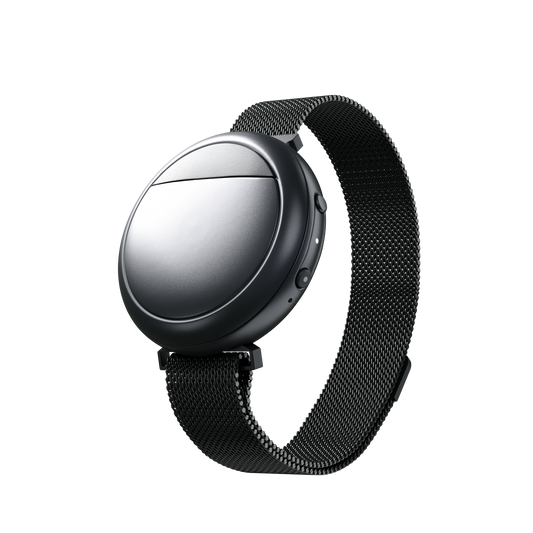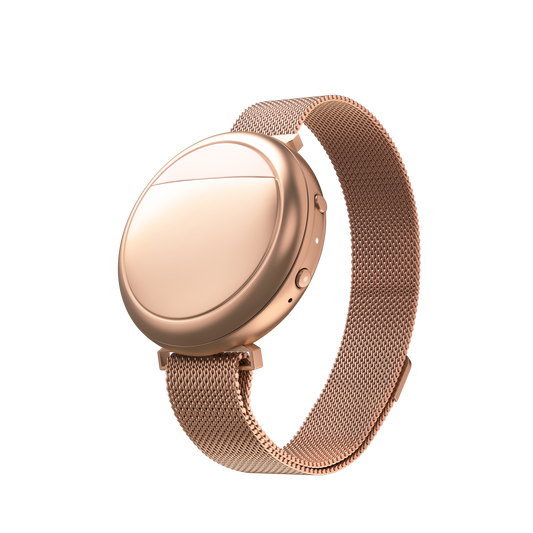Did you know that the quality of your sleep (or lack thereof) can affect your menopause symptoms and that your menopause symptoms can affect your sleep patterns? It’s a bit of a confusing chicken and egg situation trying to figure out which came first. Regardless, research has shown that there’s indeed a complex relationship between the two. Understanding this connection between sleep and menopause is critical so you can work on sleeping peacefully while at the same time, managing your menopause symptoms.
Sleep is a complicated process that affects almost every system of the body. When you get enough sleep (the recommendation is 7+ hours per night), your body and mind have time to rest and recover from the day’s activities and prepare for the next day. However, when you don’t get enough sleep, your body must work harder, your risk for more health challenges increases, and your brain is less sharp than it could be.
We know sleep is a huge struggle for so many people and it’s not easy to fix. Around 35% of females ages 40-65 say they have trouble sleeping.*
First, we’re going to go through how poor sleep can affect the other menopause-related symptoms you might be experiencing. Then we’ll dive into how those same symptoms may be making it harder for you to sleep. Then we’ll walk through steps you can take to start and tweak your sleep routine and work towards better sleep.
How sleep affects menopause symptoms
Menopause mood and emotional health
Sleep and mood are closely related. Most of us probably have our own experiences of a grumpier mood when we haven’t slept enough. And studies support that and have shown that when you don’t get enough sleep, you’re more likely to feel negative emotions like anger, frustration, irritability, and sadness. When you have trouble sleeping, the mood swings and irritable feelings that you may already be experiencing due to menopause could worsen.
Menopause brain function
Research suggests that good quality sleep is vital for your overall brain health. How well you sleep can impact your memory and decision-making skills. Since poor sleep can make these functions worse, it’s especially important to focus on healthy sleep patterns so any menopause symptoms, like ‘brain fog’, or that feeling of mental confusion and difficulty concentrating, aren’t impacted.
Menopause weight gain
There’s a link between poor sleep and weight gain. When you don’t get a healthy amount of sleep, your body has trouble regulating the hormone leptin, whose role is to tell the body when you feel full. Instead, the body produces a hormone called ghrelin, which increases appetite and causes food cravings. This, along with the fact that metabolism slows down during menopause, because of a decline in muscle mass and the inability to burn as many calories, can lead to weight gain.
In addition, research has shown that when your sleep schedule includes late bedtimes, you’re more likely to eat or snack later in the evening. And while some studies have made a connection between eating late at night and weight gain, more research needs to be done to fully determine if there’s a connection. There is evidence to suggest, however, that staying up later leads to a lack of physical activity.
Menopause bone health
Quality sleep is essential for bone health. When you sleep, your body is busy repairing your bones by removing old tissue and making way for new bone to form. During menopause, as your estrogen declines, so does your bone density, putting you at an increased risk of bone fractures. Sleep challenges and their impact on bone health may intensify this concern.

How menopause symptoms affect sleep
Menopause hot flashes and night sweats
Hot flashes and night sweats are some of the hallmark symptoms of menopause and they’re some of the symptoms that most affect your sleep. During menopause, the changing levels in estrogen can impact your hypothalamus, a part of the brain whose main job is to control your body temperature. This can cause sudden and intense bursts of heat that can happen at any time, including in the middle of the night. These hot flashes can cause you to wake up frequently, leading to troubled sleep and difficulties falling back asleep. Some people sweat so much (hence the name, night sweats!) that they need to change their clothing or bedding during the night. So instead of rolling over and going back to sleep, they are up and moving, which can also make falling asleep more difficult. All of this can seriously impact sleep quality.
Menopause insomnia
Going through menopause can increase your risk of developing insomnia. Insomnia is defined as having difficulty falling asleep, staying asleep, or waking up too early and being unable to go back to sleep. Hormonal changes, along with other menopausal symptoms like hot flashes and anxiety, can contribute to insomnia. Chronic insomnia can lead to feeling tired throughout the day, poor mood, and lack of focus and forgetfulness. As we age, progesterone declines and with menopause, it drastically decreases. Progesterone helps you fall asleep. When progesterone breaks down in your body, it makes a substance called allopregnanolone, which sticks to a part of your brain called the GABA receptor. This makes you feel tired and sleepy.
Sleep apnea
While sleep apnea is more common in men, it can occur or worsen for those going through menopause. Sleep apnea is characterized by pauses in breathing during sleep, often accompanied by loud snoring. It can lead to frequent wake ups throughout the night and result in poor sleep quality. The changes in hormone levels that happen during menopause, along with weight gain, and increase in fat distribution around the abdomen, can increase the risk of sleep apnea.
Restless leg syndrome
Restless leg syndrome (RLS) is a neurological condition that comes with an uncomfortable feeling and urge to move the legs. Those who suffer from RLS often have a hard time falling asleep and staying asleep. Studies have linked RLS with menopause due to a change in hormone levels, specifically lower estrogen levels which can impact a chemical in the brain called dopamine. The change in dopamine levels can send signals to the brain that initiate pain and movement in the legs. RLS symptoms can worsen at night, leading to sleep disruption and restlessness.
Our Ambassador Jessie knows the vicious cycle that poor sleep can bring:
"When your sleep is interrupted, everything’s worse! It's interrupted and then I'm tired all day. And then when I go to lay down, I can't fall asleep."
What can I do to get a good night’s sleep and manage menopause symptoms?
Practice healthy sleep hygiene
Practicing good sleep hygiene (sleep habits) includes maintaining a consistent sleep schedule, creating a comfortable sleep environment, and keeping electronics out of the bedroom. Noise, light, and temperature all impact sleep quality. A quiet, dark, and comfortable sleep environment often means better sleep. Also, try to limit caffeine and alcohol intake before bedtime, as both are stimulants that can affect how well you can fall asleep and the overall quality of your sleep. Bright lights and screens can suppress melatonin, a hormone involved in sleep.

Try cognitive behavioral therapy for insomnia
Cognitive Behavioral Therapy for Insomnia (CBT-I) is an evidence-based therapy that focuses on reframing the thoughts, feelings, and behaviors that may be contributing to insomnia. Some of the techniques used involve promoting healthy sleep habits and relaxation. Talk to your healthcare provider to find a trained therapist who can help you.
Make lifestyle modifications
Habits such as regular exercise, a healthy diet, and stress-reducing techniques can improve sleep quality while simultaneously helping manage menopause symptoms.
While more research needs to be done to fully understand why, there is solid evidence that regular physical activity can help you fall asleep quickly and improve your sleep quality. A balanced diet rich in nutrients can support overall health, ultimately leading to improved sleep. Stress-reduction techniques such as mindfulness and meditation can alleviate anxiety and improve sleep.
Take hormone therapy for menopause
For some people, hormone therapy (HT) may be recommended to alleviate severe menopause symptoms and improve sleep. However, HT should be discussed with your healthcare provider, as it carries potential risks and benefits that vary among individuals.
To effectively manage the sleep-menopause connection, consider practicing good sleep hygiene, prioritizing healthy lifestyle choices, therapies like CBT-I or hormone therapy when appropriate, and seeking guidance from healthcare providers. Understanding this two-way connection can be a win-win for you and can help you get a good night’s sleep while better managing your symptoms at the same time.
*Data from Attitudes & Usage study conducted in August 2021 with 4,578 female participants ages 40-65. Funded by Kenvue.







